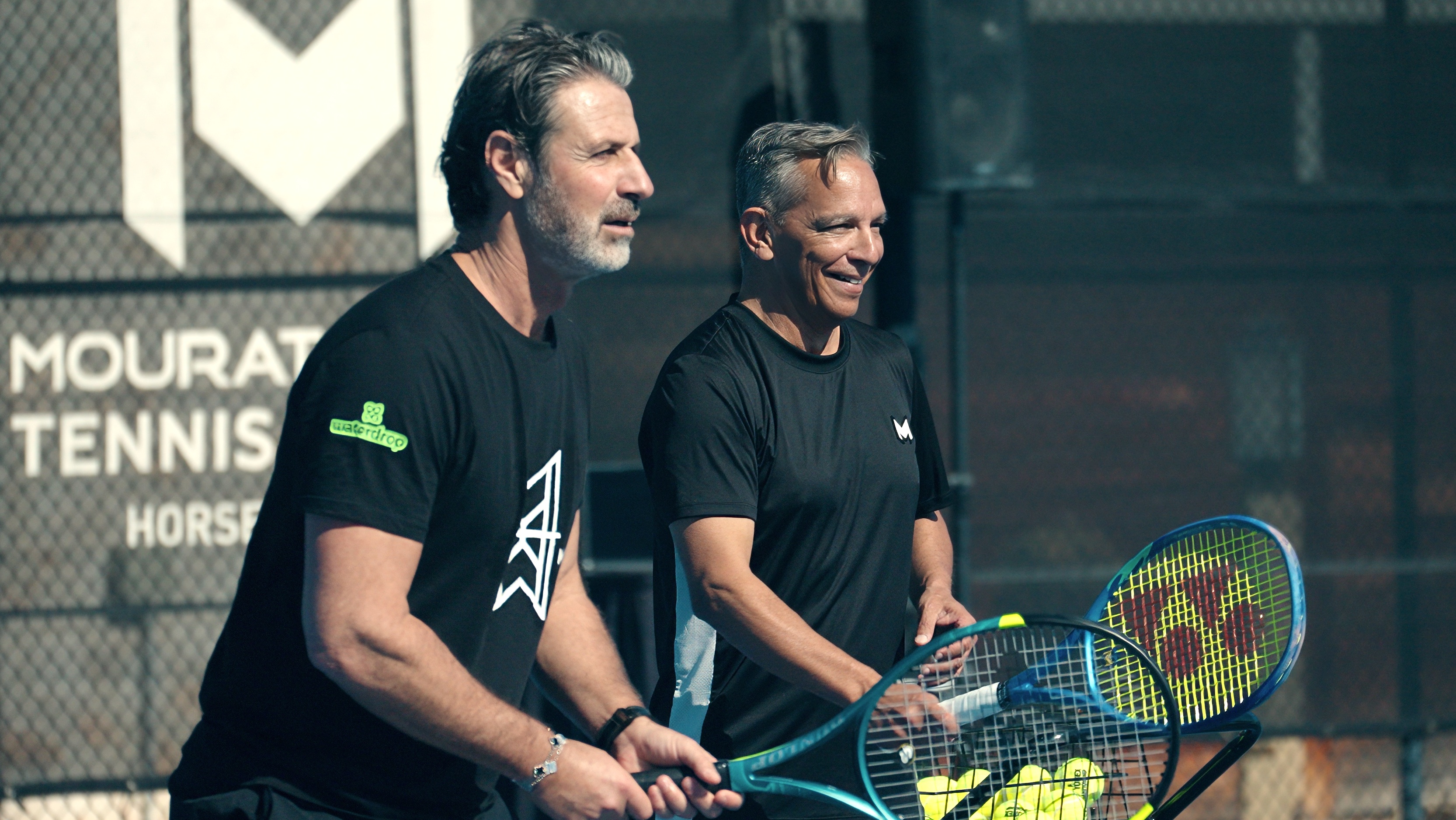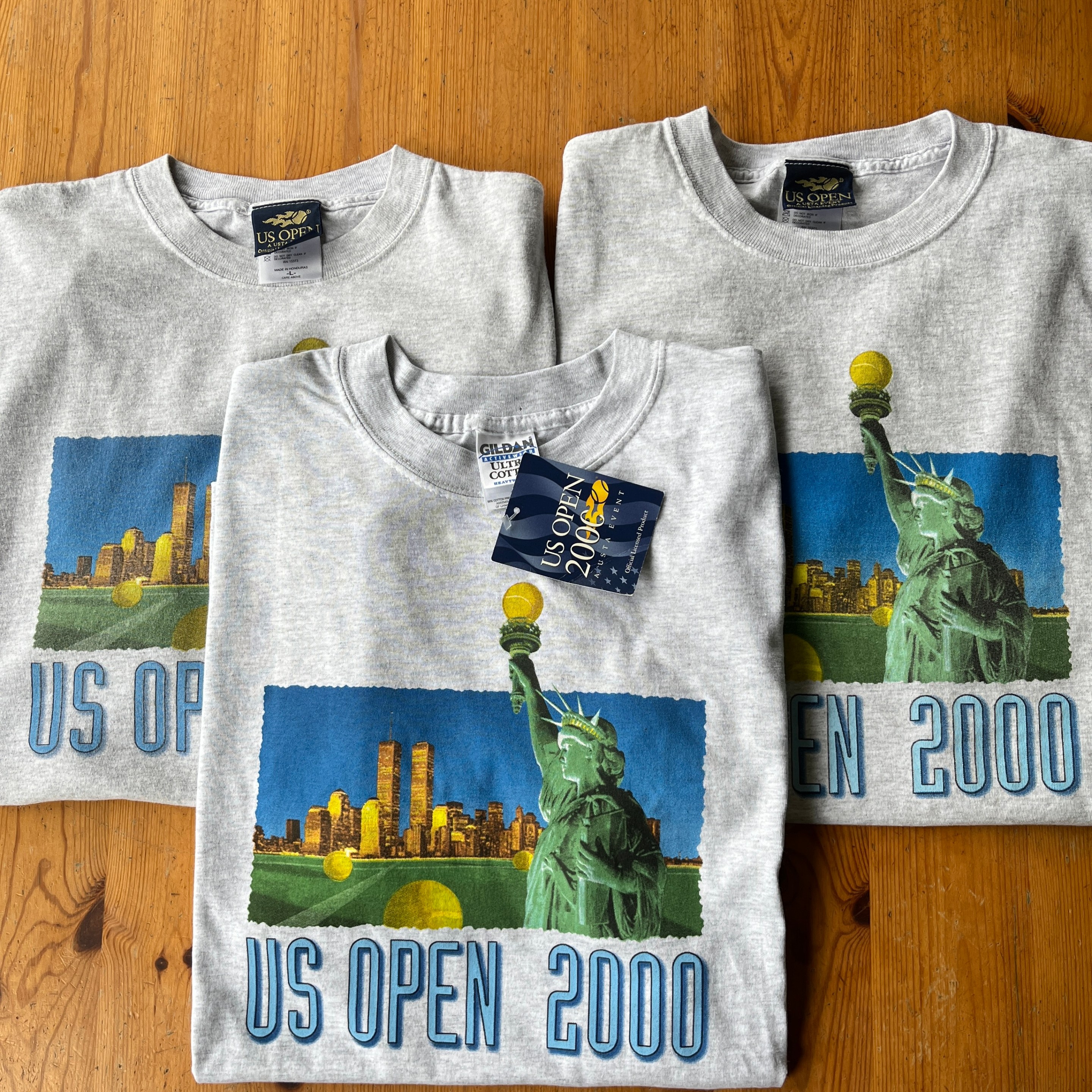The Strip
By Kannan Mahadevan
Illustrations by Amanda Berglund

There was a man everybody called Beltway Bob. You couldn’t tell how old he was, or what mood he was in. You couldn’t tell whether he was white or black, because his face was red and so dirty that he might as well have had no face. He lived under the overpass on 450, right where the Beltway dumped its traffic, and when my mother passed she always tried to remember a word she had learned for people like him a long time ago.
“He’s homeless,” I said over and over.
She ignored me, and kept thinking.
“Hobo,” I said.
“No!”
When Beltway Bob came too close to her window with his cardboard sign, she bolted the doors and looked stiffly through the windshield.
I don’t know which time was the last time I saw him. People said he was dead, that he had rolled drunk onto 450 one day and gotten run over. Nobody had seen it, of course, but his gray bundle of blankets and clothes was gone from under the overpass, and that was enough for me to believe.
After Beltway Bob, it was Neville who walked up and down the median strip. He wasn’t like Beltway Bob. He never begged for money, and he was always full of purpose and energy. His sign said “Neville Records.” He had ambitions to start his own label. So he went back and forth with a little shoebox full of cassette tapes, trying to sell them to you through the car window for a dollar. When nobody bought them, he offered two-for-one deals. I liked him, because when my mother shook her head and looked stiffly through the windshield, he shrugged and held his hands up, to show that our choice was our choice and all a matter of taste. He loved his music. For a few weeks you couldn’t drive down 450 without hearing in the background: “Gotta free up all my hitters, though—bang bang!” And then you would see Neville stalking the strip in his long winter coat with the furlined hood, bobbing his head to his new line.
I was surprised one day to find him at the courts—in my mind he was part of the scenery on 450. He sat on the bench under the willow tree, hunched over his shoebox, tearing reel after reel out of his cassette tapes and letting the tangles fall to his feet, where they sat looking oily and shining all over the place in the sun. When I came near, he looked up, right at me; and that was another surprise. Somehow I felt that somebody who was always ignored should always ignore you, too. But I wasn’t afraid. I was carrying my racquet and a can of tennis balls and a big green bottle of water that I had put in the freezer. He was the one out of place.
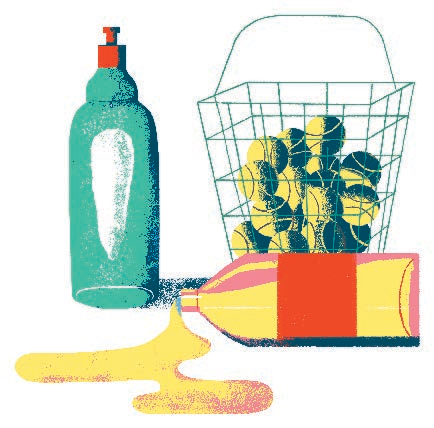
My bottle plunked. It was still a block of ice in the middle, but the rest was starting to melt. He looked from one thing to another. Then he said, as though we had talked about it, “So this where you work out.”
“Working out” sounded much more important than playing. And I felt bad, because I had been all ready to pretend I had never seen him in my life.
“That’s good,” he said, and then he didn’t say anything for a while. He put his shoebox on his lap and moved to one side of the bench. I sat down.
“Police telling me I need a license to sell. Or else I can’t put my music out.”
“That’s not fair,” I said.
“Fair?” He looked up. “You best put that word out your head.” He went on tearing the reels out of his tapes. We watched them blow around and get caught in the fence. Sadly, he reached for my soda bottle and took a sip. A week later, we met again. I had expected him back on 450, tapes or no tapes. Because while I could easily see my mother eating her hard-boiled egg at work, or Black George parking in a huge parking lot with a barbed fence and an access gate at the base in Dover, I couldn’t really believe that Neville did anything or existed at all when I didn’t see him. But the median strip was deserted. And at the courts, he seemed to be waiting. As soon as he heard someone coming up the hill he twisted his head around and jumped up. This time he had his own bottle, of Mystic Tea. He also had a green tennis racquet.
“You prolly going beat me,” he said.
I asked where he got the racquet.
“Mines now.” He was smiling deviously.
It didn’t seem worth stealing. The strings were like real string, soft-looking and fraying.
I tried to tell him that we didn’t have to play a match. We could just hit around. As politely as I could, I asked if he had played before.
He stopped smiling, and set his mouth, and he didn’t say another word until we began to play.
I felt that if I neglected any of the rules, he would know. So I told him to serve diagonally into my service box, and if he missed twice in a row I raised my finger, called “Double fault,” and claimed the point by moving to the other side. He moved too. When he hit four double faults in a row, I said “Game.” When he lost six games in a row, I said “Set,” feeling merciless, and walked to the net and stayed there until he knew it was all over.
Afterwards we rested. We sat down on either side of the net. I drank my water, and he drank his tea. It was not too hot, but the sun was bright and made sharp black shadows out of the crisscrossing net. Neville lay down, but then almost immediately got up.
I told him that they didn’t need any lights at the French Open because Paris was the City of Light and most matches went past midnight, and that in the southern hemisphere the summer was so hot that they let you play naked at the Australian Open if it got above 120 degrees.
“I lost?” he yawned.
I nodded, and he lay down again in the shade of the net, which looked to me like a cool, dark web. Soon he was fast asleep, flat on his back with the web all over him. I tried to leave quietly, but when I dropped my racquet he didn’t move.
We began to play regularly, Neville and I. He assumed that that was why I was there; I had no chance to say no. But he never got any better. I hit the ball as high and as slow as I could, and I even began to serve underhand. But he could only wait patiently for the ball to come to him for so long. At the last second he always got too excited and made a sudden move, as though the ball were some slippery fish he had to cling to, and he would end up whiffing. Or he would shank it off the top of the frame, looking everywhere for it while the ball spun higher and higher above his head and then dropped somewhere behind him.
So I focused on the rules. I taught him that at five games all you have to win seven games instead of six to win the set, and at six games all you need to play a tiebreak.
“The only place you play a tiebreak in the final set is the US Open,” I told him. “At the Australian and the French and Wimbledon you have to play it out when you get to six all. It could go on forever.” I stopped, to see if he was still listening. He stood with both hands on the net, leaning in.
“The record is 50–48. Charlie Pasarell beat Pancho Gonzales. That set took three days to finish.”
Neville smiled at the sound of the old names, Charlie and Pancho. But after a while he was shaking his head seriously. “We not going go on that long,” he said. “I got places to be.”
When he learned that tennis wasn’t the same everywhere, he began to name all the countries he could think of. “How they play there?” he would ask.
“In Canada they play Canadian doubles,” I said. “One person is on one side and two on the other.”
“Two-on-one,” he nodded.
“Sort of,” I said.
He began to smile to himself, and asked, “So how they play in Eritrea?”
I stared at him.
“Eritrea,” he said again. “Do they play tiebreaks in Eritrea?” His smile got bigger and bigger when it became clear that he knew something I didn’t, and with his white teeth and dark beard he looked handsome. He spelled it for me.
I went home, to the atlas under the coffee table. Eritrea was a little country in yellow, under Ethiopia. Its capital was Asmara. I closed the book and thought of Neville, who at that moment began to exist even when I didn’t see him. Somewhere, during some past, he had learned about Eritrea, and now he could think about it whenever he wanted and nobody would know. They would only see him walking up and down the strip with traffic never stopping in either direction; he would be seeing Eritrea on the Nile. To me it seemed like a great trick, like magic.
I taught him the special rules of tiebreaks. He listened carefully; he wanted to do things properly. Sometimes, just for practice, he asked to play a tiebreak instead of a set; and then he made sure to start serving from the ad side rather than the deuce and to switch sides after six points had been played, even if the score was 6–0 and there was only one point left to play.
I brought out all the protocol I knew. I told him everything I could think of, everything I had at first doubted that he would want to know. When I ran out I began to lie to him. At first it didn’t seem like lying. It came out of the truth. I told him you had to wear white at Wimbledon. Then I said you had to bow to the Queen when your match was over. This was true, when the Queen was there. But the Queen was hardly ever there. She only cared about British players, or the finals. But Neville liked it as a post-match ritual; and after shaking my hand he would turn to the fence and bow to no one.
I told him that they didn’t need any lights at the French Open because Paris was the City of Light and most matches went past midnight, and that in the southern hemisphere the summer was so hot that they let you play naked at the Australian Open if it got above 120 degrees.
“What about women?” Neville asked immediately.
I nodded grimly.
For a second he stood with both hands on his head and his mouth open and his eyes open wide, shocked with happiness. “I need to get me some tickets there,” he said quietly. “Where you say it was again?”
“Melbourne,” I said.
So he got a job at Red Lobster, on 450. I would never have believed it was a real restaurant, with a kitchen that served food that people left home to eat and pay for. It was just a thing I had always passed. But Neville walked in and told them he had service experience in D.C., and they made him a busboy and paid him every other Friday. And now when I passed it I couldn’t help feeling a little impressed, because I knew there was money inside.
Seeing him walk to the courts after his Friday shift, I felt that nobody could be bored on the weekend, or sad. On these Fridays he walked with a spring in his step, hitching up his pants and shouting, “Free at last!” He never had a shirt on, just his red Red Lobster cap and his black busboy apron rolled up like a towel around his neck. He was always waving and nodding and pointing, acknowledging greetings I didn’t see and returning them without stopping his walk. Once he saw me walking home from 7-11. “I’m saving!” he called, patting his pocket. “Saving up!”
His new ambition was to get to Melbourne for the Australian Open. Whether he got there this January, or the next or the one after that, he didn’t care.
“You coming too?” he said.
“I can’t,” I sighed.
“Too bad.” He shrugged, the same way he shrugged when nobody would buy his music; and I felt a little jealous that my life was not romantic and open like his. I had to go to school.
At the courts, Neville began to attract attention. Every day he stole more from work. He stole glasses and spoons just so he would have a way to eat the food he stole. He started a small collection and hid it in a bush by the gate. One Friday he brought over a trash bag full of popcorn shrimp and a bottle of Olde English from the cut-rate liquor store.
“Payday!” he hollered. “It’s the weekend now, boy. Ain’t nobody can stop me from getting lifted. Police can’t stop me. He saw me drinking and he ain’t have a word to say about it.”
Every few minutes he sang, “I got shrimp, I got 40s. Y’all know you wanna get in on this.”
People laughed and went on with what they were doing, so Neville sat down on the bench and began to eat and drink by himself. But not in an aloof way. Whenever someone came up the steps he said loudly to himself, “These straight from the Chesapeake.” Or he would take a sip from his 40 and say “Aahh!” so that we all heard.
No one joined him. He just gave his shrug, as though we were the ones acting ridiculous. After a while it did seem that way—he was enjoying himself so much.
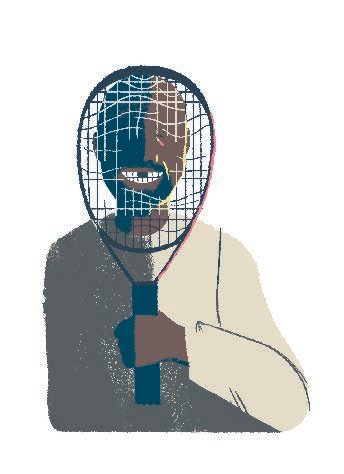
When I went to try a piece of shrimp Black George stopped me. He whispered in a cautious, stupid way, “You don’t know where that food has been.” I ate it anyway. I felt I knew Neville better than anybody. He hadn’t told them about Eritrea.
All they could talk about was how ghetto he was. One day Archie announced that Neville was most likely an ex-crackhead from Anacostia.
“No he isn’t,” I said quietly. I still wanted to think he belonged only to me.
“Look at him,” Archie said. “I’m just saying it’s likely.”
And when Neville came to the courts later with a big hole where his front tooth used to be, it was decided. It wasn’t held against Neville. People were proud to have someone from the ghetto so close at hand.
“What happened to you?” somebody asked. “I was trying to open a can of corn at
work,” Neville said. “I forgot I got the real one right here.” And he ran over to the bush and brought out a can opener, and everybody laughed: first at the can opener coming out of the bush and then, harder, at how strange but fitting Neville looked now, laughing with a big hole in his mouth, as though he should have had it all along.
The same thing happened when his strings finally broke. He passed his racquet around for all to see. People had been waiting for it for weeks, and they all admired how wrong it looked.
“It’s like some spaghetti,” Archie laughed, and he put his big hand straight through the limp strings, waving at us.
Black George said, “You know you going have to get a new one now, Neville.”
But Neville threw off his cap and started to jump around like he was just getting started. He kept hitting until the strings parted and there was a hole in the middle of the racquet. People were howling with laughter, but Neville kept swinging and the ball kept going through the hole. Eventually Black George shook his head and said, “Neville, man, you too ghetto,” and told him to go borrow a spare from his bag.
It was just for the fun of telling us about it, I think, that he tried to steal another racquet. A security guard saw him and chased him out of the store.
“Damn police,” Neville muttered.
He didn’t seem to miss playing sets and tiebreaks with me. He had everybody’s attention now; he belonged to everybody, like a celebrity.
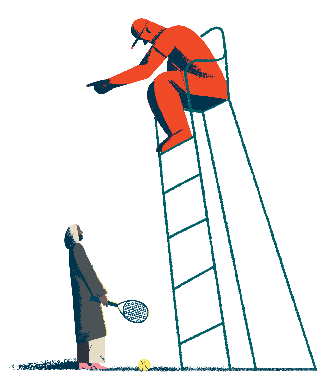
“Just look at him,” Black George would sometimes say; and I would, hoping to see something that nobody else saw. But, now that somebody had said it, it was hard not to see a crackhead missing a tooth.
One day Neville came to the courts and threw off his Red Lobster cap and stomped on it. “Manager talking about, I don’t know how to sweep!” he said, and spat. “Who don’t know how to sweep! You just take the broom and go like this”—he moved his hands in fast circles, like he was a stirring a pot. “It’s a line of people that need to sit, and the cook ain’t have time to blow his nose, and the manager telling me to go in the kitchen and sweep while they trying to get food ready, like that’s going save time for when we close down. I told him what I should be doing is getting more tables ready because people not trying to stand all day long, and the last thing he should be pressed about is how the floors look—”
“So they let you go,” Archie said.
Neville nodded.
“Because you can’t sweep.”
Neville nodded. Archie looked thoughtful. “Also the background check came back
and they saying I got priors,” Neville added. There was a silence, and Neville looked around at us. Archie was smiling with triumph. “They saying you got priors?”
“I don’t even know,” Neville said in a tired way. “I mighta had one for possession. But I’m clean now though.”
“I bet half of them working there got a prior for possession,” Archie hooted. “They can’t fire you for that. I’ll tell you what you gotta do. You go on back there and tell them to take you back or else you going sue them for wrongful termination.”
So Neville went back and threatened Red Lobster with a wrongful-termination suit. When he came back, I didn’t see his cap and busboy apron.
“They give you severance?” Black George asked suddenly. “Because legally, they obligated to give you severance.”
“They took my uniform!”
Black George said, “At least tell me they paid you for training.”
It took Neville a few days to work up the courage to claim his severance and his training money. The manager had said he would call the police if Neville went back. He went around and around, muttering to himself and sometimes to us about the police. They had told him the possession charge wouldn’t go on his record. And there it was. They had stopped him from putting his music out. And now they were trying to stop him from collecting what was rightfully his. He talked as though he had reached a great understanding about himself, as though he had finally made sense of his life. It was the police that had always kept him down. “I’m going to get my sevens pay,” he said.
And, to my surprise, he did. The manager gave him a twenty-dollar bill.
“Prolly smart,” Archie said. “Manager would’ve lost more if the police came and scared the customers away.”
That afternoon, Neville didn’t say much. He made a lap around the courts with the bill rolled up like a cigar between his lips, nodding coolly at everyone who looked his way.
“Don’t keep handling it,” Black George called. “It’s going fly away on you.” Then Neville disappeared. A few hours later a policeman drove by and asked if we knew the man asleep in the creek.
“We know him,” Archie said. “He just has to sleep it off.”
“So let him sleep it off in your house,” the policeman snapped. “Not where everybody wants to stop and look at him. He’s slowing down traffic.”
There was a long silence. Nobody wanted to take Neville in.
“Officer,” Archie said at last. “Take him to the drunk tank. I’ll be there in the morning for him.”
And from the way the officer dipped his hat, I felt that he had seen this before, the loyal man picking up his shady friend from jail. For the rest of the evening Archie walked around stiffly, like a man about to perform an important ceremony.
All night I thought about Neville in jail, and what I would ask Archie the next day. There was the jail, and how it looked. And how Neville looked, in jail. I wanted to know that he looked like a man who knew about tiebreaks and the deuce and ad sides of the court, and Eritrea. All I had taught him would show in his face, I was sure, the question was how.
In the end all I could ask was, “How did he look?”
But Archie had parked in a reserved spot at the jail and gotten a huge ticket.
“The sign was faded,” he kept insisting bitterly.
And when I asked what Neville looked like for the third or fourth time, he turned on me and shouted, “What the hell you think he looked like? The jail looked like a jail. Everybody inside look like they in jail. And Neville look the same as all of them.”
When Neville came back around, I saw that he did look the same. But now he asked us for money. He did it so casually that you could tell he expected it. He didn’t expect Archie to begin to scream: about the ticket and points on his license, about Neville’s nerve coming back around decent people, about how he needed to take his ghetto self back where he came from. Neville looked scared at first, but by the time Archie finished he was already walking down the hill.
A few months later a new man was on the strip.
“You see how bloodshot his eyes are?” Archie said. “You see the white around his lips?”
One day my mother passed him on 450 and braked so hard that I thought she had lost her mind and was going to give him money.
“Mendicant!” she screamed.
I looked at her in terror.
“Not hobo!” she said, smiling and grabbing my wrist. “Not homeless! Mendicant!”
The mendicant came forward. My mother drove on, smiling and mouthing the word that had come back to her after so long.
Kannan Mahadevan is a graduate of the University of Iowa Writers’ Workshop, and has written for the Los Angeles Review of Books and the Los Angeles Times. He is at work on a novel. “The Strip” is one of 12 stories from A Public Court, a linked collection set on four neighborhood tennis courts in a suburb of Washington, D.C.
Featured in Racquet Issue No. 6
